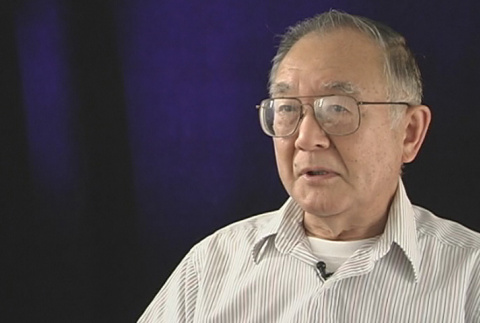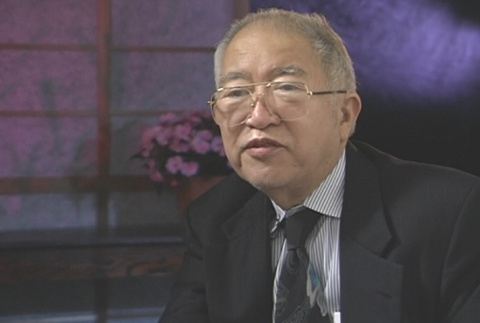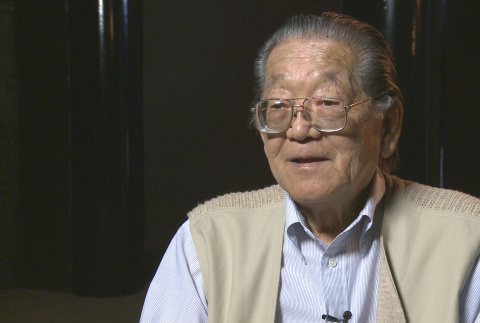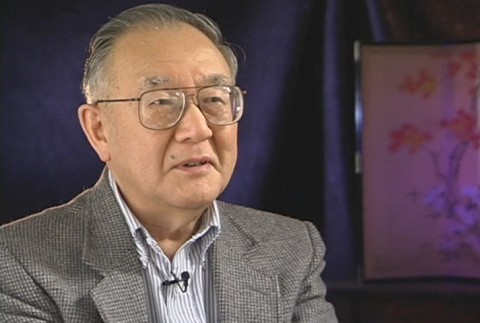2107 items
2107 items
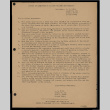
doc
Report of committee on student teacher arrangements (ddr-csujad-55-1731)
Report and recommendations on student teacher arrangements. See this object in the California State Universities Japanese American Digitization project site: sac_jaac_1733
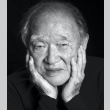
Collection
Naoko Wake Collection of Oral Histories of US Survivors of the Atomic Bombs (ddr-densho-1021)
This collection consists of ten interviews that historian Naoko Wake conducted in 2011-15 for her book American Survivors: Trans-Pacific Memories of Hiroshima and Nagasaki. Five of the interviews are with US survivors of the atomic bombings of Hiroshima and Nagasaki in 1945, while the other five are with medical and legal professionals and community activists who …

Narrator Keiko Shinmoto
Keiko Shinmoto's father migrated from Hiroshima to Portland, Oregon, where his brother was an owner of a grocery store. After returning to Hiroshima to see his ailing father, Keiko's father found it impossible to return to America as his mother hid his passport to keep him in Japan. Shortly, Keiko's mother joined him in Hiroshima, also …

Narrator Matsuko Hayashi
Born in 1921 in Parlier in Fresno County, California, Matsuko Hayashi (pseudonym) grew up as the second oldest of the eight children of a first-generation immigrant who had come to the United States as a sixteen years old, and his wife who had come as a "picture bride." They raised grapes on three farms that Matsuko's …
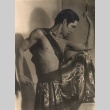
img
Yeichi Nimura posing in costume (ddr-njpa-4-1404)
Caption on reverse [translation]: "Yeichi Nimura photo - Iris - Paris." Caption on reverse: "Today the dancers of the world can be counted on the fingers of one hand, and Nimura is one of them. He was born in Japan and educated in the United States, where he first achieved fame and where he originated his …
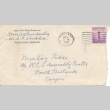
doc
Letter from Mary Hedley to Miyuki "Kay" Kida (ddr-one-3-26)
Envelope addressed to Miyuki "Kay" Kida in the Portland Assembly Center, letter from Mary Hedley to "friends" meaning Kida family. Three clippings from the newspaper covering food rationing, the possibility of fuel rationing, and the possibility of incarcerated Japanese Americans working in sugar beet fields and other crops in the inner-United States. The letter mentions that …
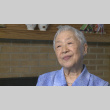
vh
Atsumi Ozawa Interview (ddr-densho-1000-348)
Nisei female. Born May 25, 1928, in Huancayo, Peru. Grew up in Huancayo, where father ran a successful store. After the bombing of Pearl Harbor, father went into hiding in an attempt to avoid being picked up by the Peruvian government. He was eventually found and picked up, and was reunited with family on the ship …
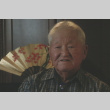
vh
Roy Matsumoto Interview (ddr-densho-1004-9)
Nisei male. Born May 1, 1913, in Laguna, California. Lived in Japan from childhood through teenage years, before returning to the United States during high school. Incarcerated in the Santa Anita Assembly Center, California, and the Jerome concentration camp, Arkansas. Volunteered for the U.S. army in 1942, and was inducted in the Military Intelligence Service. Selected …
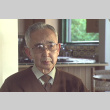
vh
Shosuke Sasaki Interview (ddr-densho-1002-2)
Issei male. Born 1912 in Yamaguchi ken, Japan. Immigrated to United States in 1919. Lived in Pomeroy, Washington, and Seattle, Washington, before World War II. Incarcerated at the Puyallup Assembly Center, Washington and the Minidoka concentration camp, Idaho. Resettled in New York. As a member of the Newspaper Guild, led effort to eliminate pejorative use of …
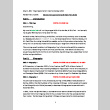
doc
Keynote Talk: Rev. Ai Chih Tsai Biography and Legacy (ddr-densho-446-353)
Notes for Taiwanese American Historical Society Keynote Talk on May 17, 2017
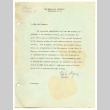
doc
Dealing with Japanese-Americans by John F. Embree, Documents Section, Office of Reports (ddr-csujad-48-131)
Short report from WRA Documents Section leader John F. Embree on recommended attitudes, suggestions, and practices while interacting with incarcerated Japanese Americans. According to Embree, race is hereditary while culture is acquired, and Caucasians should refrain from making stereotypical images of "Japanese types." Embree describes the differences in culture and attitudes including questions of loyalty between …
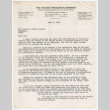
doc
Letter from Robert Cashman to American Consul General in Shanghai (ddr-densho-446-242)
Affidavit in support of Ai Chih Tsai's appeal to return to U.S. with immigration status without qualification.
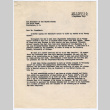
doc
Letter from Ai Chih Tsai to President Franklin D. Roosevelt (ddr-densho-446-122)
Request for executive action to change status to "friendly alien" based on prior work for U.S. government in order to avoid deportation, to avoid consequences for wife and baby, and to allow Tsai to be considered for employment in the American Consulate in Formosa and Chinese Embassy [final draft]
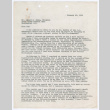
doc
Letter from Ai Chih Tsai to Edward J. Ennis (ddr-densho-446-100)
Petition to change Tsai's alien status with description of past efforts and employment record.
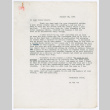
doc
Letter from Ai Chih Tsai to Robert Cashman (ddr-densho-446-101)
Request for Cashman to write a letter to whom it may concern stating that Cashman advised Tsai to withdraw his petition for status change.
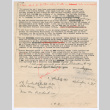
doc
Letter from Ai Chih Tsai to President Franklin D. Roosevelt (ddr-densho-446-123)
Request for executive action to change status to "friendly alien" based on prior work for U.S. government in order to avoid deportation, to avoid consequences for wife and baby, and to allow Tsai to be considered for employment in the American Consulate in Formosa and Chinese Embassy [typed draft]
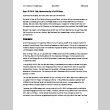
doc
Pacific Times: Rev. Ai Chih Tsai: Memories by His Children (ddr-densho-446-351)
Article submitted for publication in the Pacific Times on May 3, 2017.
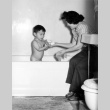
img
WRA resettlement image (ddr-densho-7-10)
Original WRA caption: "It's good to have a private bath of your own again," says Mrs. George Isoda as [she] gives her 2-1/2-year-old son Robin his daily bath. "After the community showers at the relocation centers, there's nothing quite so good as to be able to come home to your own warm tub and all the …
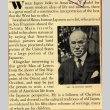
doc
Photograph and short article regarding Iwasaburo Okino (ddr-njpa-4-2023)
Caption on front: "'While Japan looks to America as a model for many modern ideas of life and manners, there is a great need of a constructive interpretation of the best that the West has to offer.' Iwasaburo Okino, famous Japanese novelist, who arrived in San Francisco aboard the Tatsuta Maru recently, added to his above …
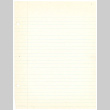
doc
My plans for my future (ddr-csujad-48-19)
Term Paper by Haruye Imahori for period VII Social Problems course, taught by Harry Bentley Wells at Manzanar High School. Haruye would like to be a bookkeeper eventually. She recounts the satisfaction in seeing results during her classes. However, war and subsequent forced evacuation create uncertainty for her. She tells that her parents believe the best …
![Letter from Ayame Okine to Mr. and Mrs. Okine, January 15, 1946 [in Japanese] (ddr-csujad-5-120)](https://ddr.densho.org/media/cache/9a/54/9a5461719da20139ae766a138da9fb5a.jpg)
doc
Letter from Ayame Okine to Mr. and Mrs. Okine, January 15, 1946 [in Japanese] (ddr-csujad-5-120)
A letter from Ayame Okine in Chicago, Illinois, to her parents-in-law, Seiichi and Tomeyo Okine in Hawthorne, California. In the letter, Ayame describes her job in Chicago. She assists in making cameras and helps to light tobaccos. Her work starts at 8:00 AM and ends at 4:30 PM, including a 20-minute break two times. She earns …
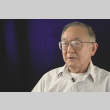
vh
Henry Miyatake Interview IV (ddr-densho-1000-56)
Nisei male. Born April 28, 1929, in Seattle, Washington. Incarcerated at Puyallup Assembly Center and Minidoka concentration camp, Idaho. Had some key childhood experiences with discrimination that made him a self-described, "independent thinker," and later, an influential figure in the Japanese American community. While a teenager in camp, he wrote and defended an essay criticizing the …
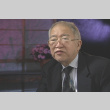
vh
Ben Uyeno Interview (ddr-densho-1000-100)
Nisei male. Born November 30, 1918, in Yakima, Washington. Spent two years of childhood in Japan. Returned to Seattle and became an active participant in Japanese American community life. Was attending the University of Washington when World War II started. Avoided incarceration with the help of the Friends (a Quaker organization), which hid him and helped …
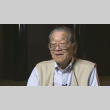
vh
Frank Sumida Interview (ddr-densho-1000-261)
Nisei male. Born August 10, 1925, in Chicago, Illinois. Grew up primarily in Los Angeles, California, where parents ran a restaurant. After the bombing of Pearl Harbor, removed to the Santa Anita assembly Center, California, where he participating in running an organized gambling operation. Moved briefly to Heart Mountain concentration camp, Wyoming, before being sent to …
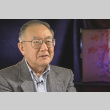
vh
Henry Miyatake Interview I (ddr-densho-1000-53)
Nisei male. Born April 28, 1929, in Seattle, Washington. Incarcerated at Puyallup Assembly Center and Minidoka concentration camp, Idaho. Had some key childhood experiences with discrimination that made him a self-described, "independent thinker," and later, an influential figure in the Japanese American community. While a teenager in camp, he wrote and defended an essay criticizing the …
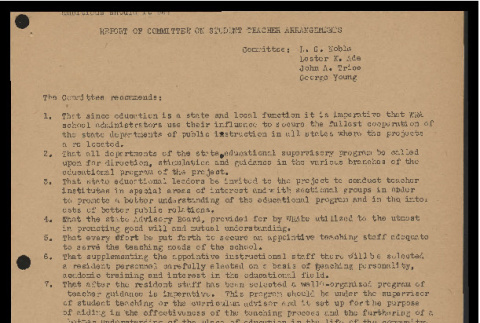
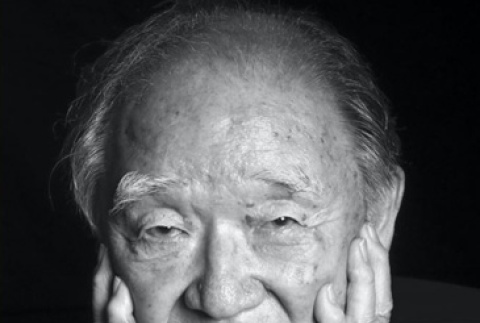

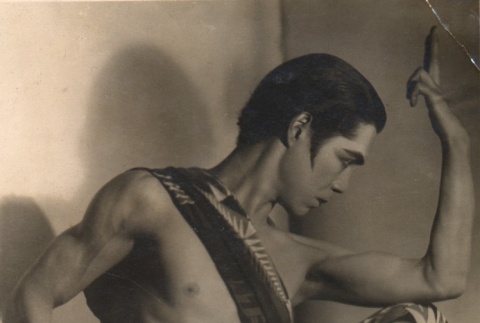
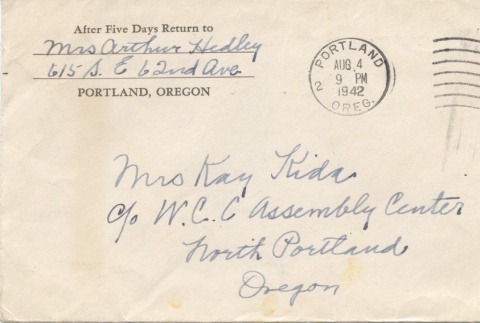
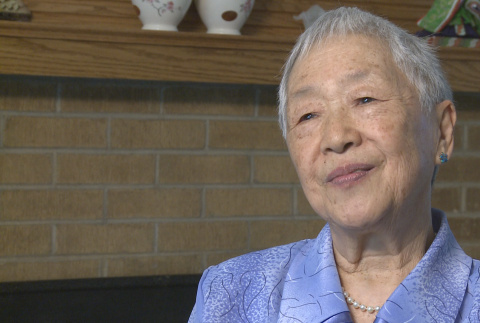
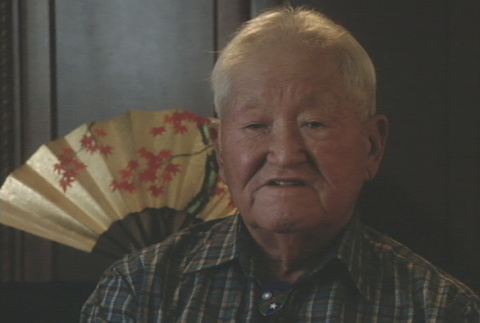
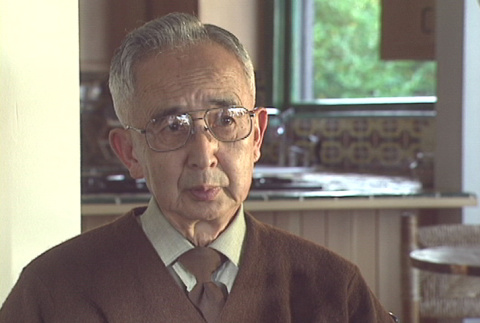
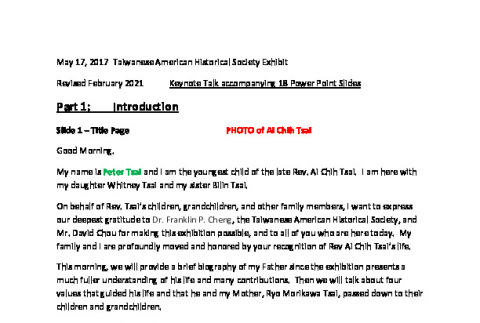
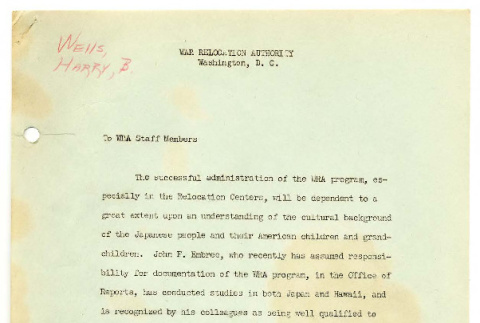
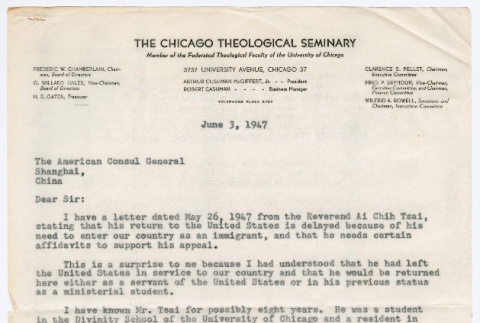
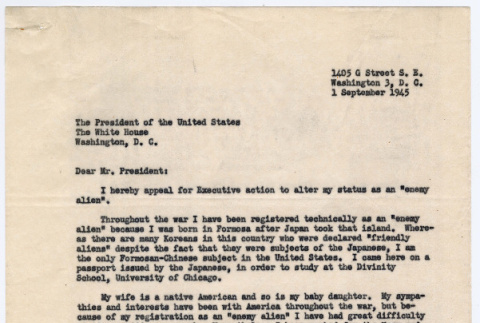
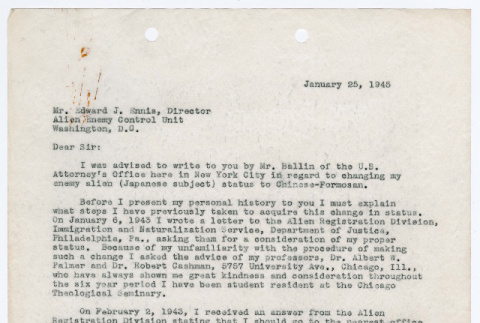
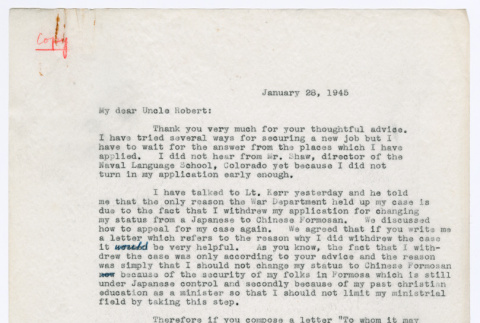
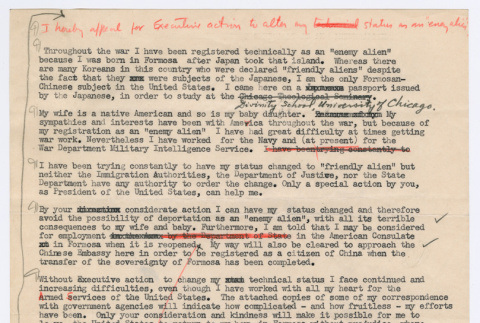
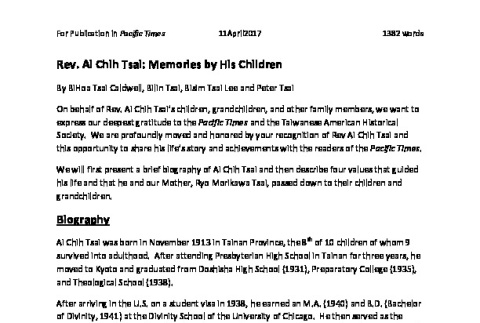
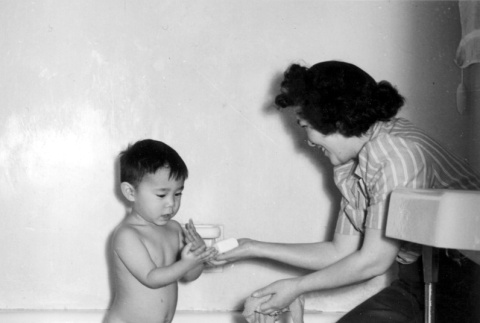
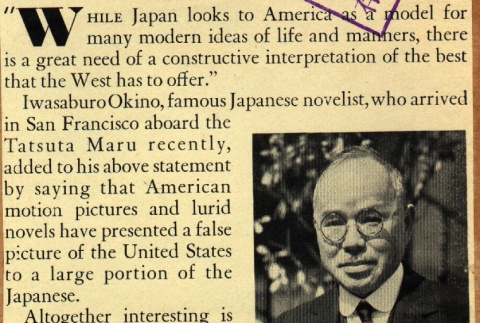
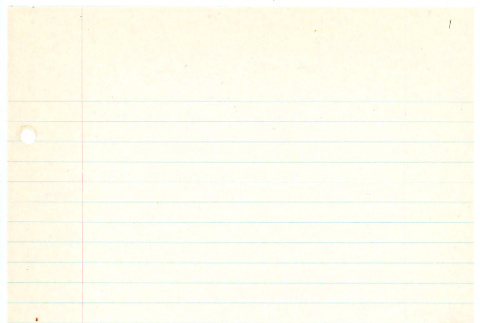
![Letter from Ayame Okine to Mr. and Mrs. Okine, January 15, 1946 [in Japanese] (ddr-csujad-5-120)](https://ddr.densho.org/media/cache/97/3d/973d2b7008a1bb85b41f32a2f2af2e36.jpg)
